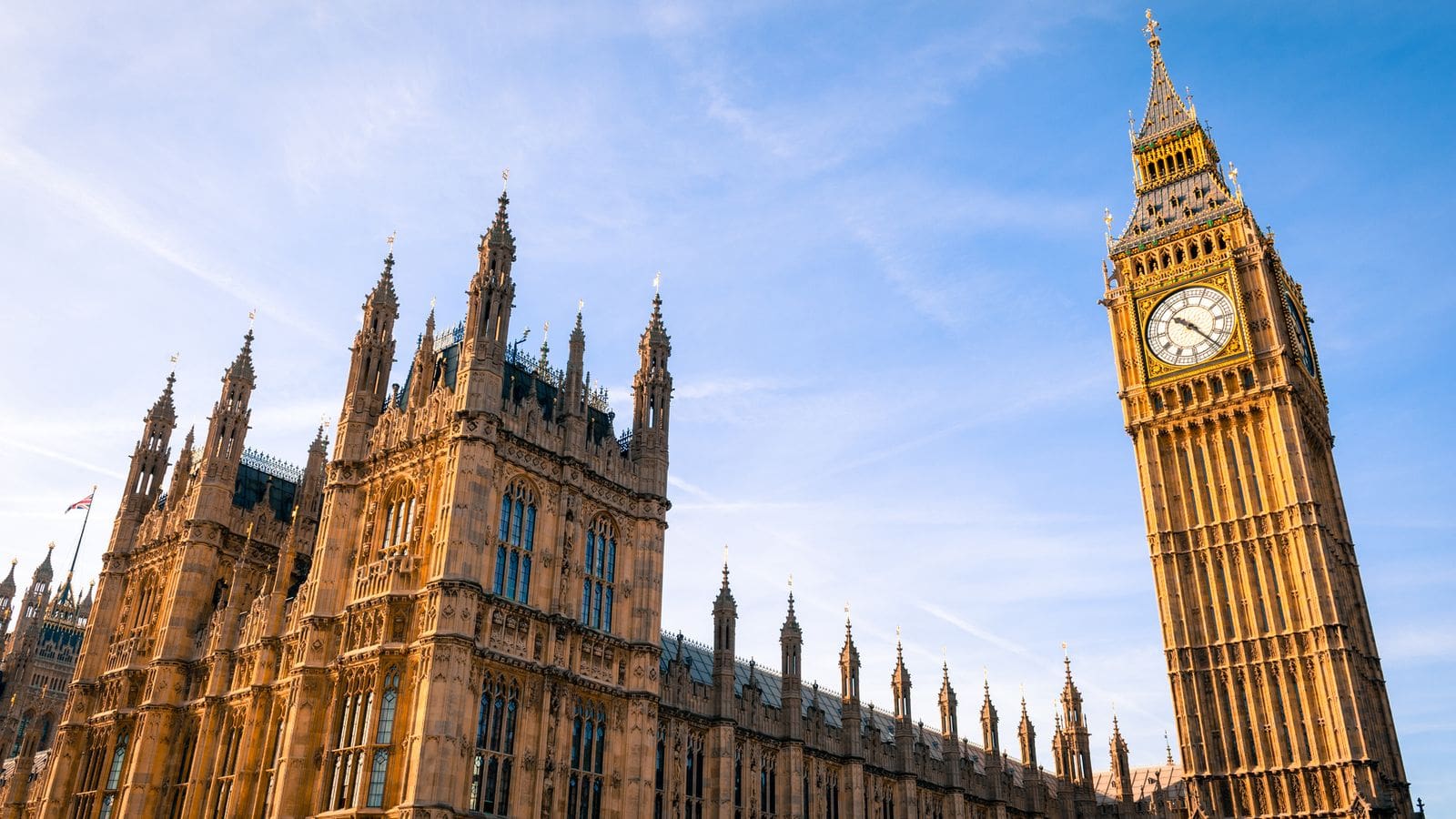

Putting Parliament Back in Charge
Tory leadership candidates are now regularly being asked whether they would commit to withdrawing from the European Convention on Human Rights. This is for the birds – you read it here first. Nonetheless, the idea that there should be a U.K. ‘Bill of Rights’ to replace the Human Rights Act 1998 has been floating about in Tory party policy discussions since at least the days of David Cameron, and it is now, at long last, apparently coming to fruition.
It has been difficult for the layperson to get accurate information about what this really means and why it matters. Partly this is because for a long time the substance of what was being proposed was undoubtedly unclear. Partly it is because politicians and journalists have since its enactment done a terrible job of explaining what the Human Rights Act 1998 actually is, and what the problems with it are. And partly it is because many legal commentators – particularly those who are interested in human rights – tend to let their anti-Tory bias get the better of them and become carried away with rather ludicrous flights of fancy about the Conservative Party harbouring ambitions to ‘wind the clock back to a pre-1945 era’ whenever the subject comes up. This only serves to shed heat, rather than light, on the subject.
To get to the bottom of things and elucidate why reform in this area is required, it is necessary to explain a little bit of the history of the development of human rights law since the Second World War. To simplify somewhat, during the war a group of international jurists and diplomats began a movement to establish an international ‘bill of rights’ – the idea being that enshrining a commitment to fundamental rights in an international treaty would prevent the kinds of atrocities that had characterised the previous decade or so. Owing to the rapid deterioration in relations between the West and the Soviet Bloc in the aftermath of the war the vision of a single binding global human rights treaty never came to fruition. But in Western Europe at least it was possible to build consensus around a set of binding commitments to human rights, and this allowed a treaty – the European Convention on Human Rights – to come into being.
From the outset, the U.K. had a complicated relationship with the Convention. On the one hand, this country took the lead in drafting the treaty and giving it diplomatic impetus (it was, ironically, largely a creature of Tory politicians). These days it seems somehow politically incorrect to point out that Great Britain was almost the only nation in Europe at that time that was not either currently under some kind of authoritarian rule or had been in recent memory. But in the late 1940s it was seen as quite natural for this country to exercise moral leadership in this regard.
Yet, probably for the same reason, British politicians (and, for a while at least, judges) were lukewarm about the Convention itself. The prevailing view was that while it was necessary – just for show – that Great Britain be a party to the treaty, the rights contained within it were all adequately protected by the English common law and longstanding conventions of our uncodified constitution. Moreover, as a matter of law, the U.K.’s legal system is a ‘dualist’ one, meaning that even if the state becomes party to an international treaty, that treaty’s provisions do not become part of our law unless a statute is enacted which establishes them as such. For decades after the Convention came into effect, it was therefore possible for politicians to largely ignore it; it was an international commitment but not an enforceable source of rights in domestic law. While it was technically possible for a U.K.-based claimant to sue the Government in the European Court of Human Rights in Strasbourg, litigants with the wherewithal to do so were rare.
Fast forward to the New Labour years. Readers who were alive at the time will recall that Tony Blair’s Government came to power with a quasi-revolutionary programme of reform. Among the many changes Blair wished to usher in was to make the rights in the European Convention part of U.K. law through having Parliament pass a statute to say so. He called this “bringing rights home” advisedly; the whole point was that it had been Britain that had taken the lead in creating the Convention in the first place, and his Government was, in this framing, going to finish what had been started all those decades ago.
Why did Blair feel it necessary to do this? It was hardly as though there had been a great clamour among the populace for human rights reform in the 1990s. There was undoubtedly method in his madness: the idea that the British Government was largely a rights-respecting liberal democracy irrespective of its participation in the European Convention was true, if only one were willing to overlook what had been going on in Northern Ireland for decades. Blair and his Government well understood that enshrining commitments to human rights in law was going to be a crucial element in securing trust among the Catholic population of the province, and hence had to be part of the peace process there. But it is also difficult to avoid the conclusion that the Human Rights Act 1998, as it became, resulted in large part from the Blair Government’s squeamishness about the country’s existing institutions (and concomitant desire to ape American ones). Blair, Brown and Mandelson did not like the Britain of the past and were embarrassed in particular by its old-fashioned and fusty constitutional arrangements. They wanted to modernise. Britannia was going to be ‘cool’, and cool countries respected human rights. What better way to show the U.K.’s new face to the world, then, than to make the European Convention part of U.K. law?
The problem with doing this, and the real source of the ongoing issues with the Human Rights Act for reasons we will come to, is that in the U.K.’s constitution Parliament is supposed to be ‘supreme’. All that this means is that Parliament (meaning really the House of Commons) is the ultimate law-maker; what the sitting Parliament decides should be law, will be so, and will trump any existing laws which conflict with it. Parliament, in other words, could pass a Human Rights Act. But any time it wished, a future Parliament could create a new law superseding it. Lawyers call this the doctrine of ‘implied repeal’: if a newly enacted statute conflicts with an existing one, the newly enacted one prevails – it “impliedly [sic]” repeals the old Act. For Blair’s Government, which wanted in the Human Rights Act to create something foundational and long-lasting, the problems were obvious. Parliament could create a statute saying that citizens have, say, the right to freedom of expression. But a future Parliament could just so happen to make a new Act curtailing freedom of expression and this would trump the contents of the Human Rights Act through implied repeal. The Human Rights Act would exist only under sufferance, in other words.
It was the circumvention of this problem that led us to the issues we confront today. The Blair Government’s wheeze for getting around implied repeal and, ultimately, Parliamentary supremacy, was to give the judiciary hitherto unknown licence to challenge the settled will of the legislature, through a mechanism contained within the Human Rights Act 1998 itself.
The mechanism in question is found in section 3 of the Act, which permits judges to interpret any statutory provision in such a way that it does not conflict with one of the Convention rights “so far as is possible to do so”. If a new Act comes onto the books which on its face contains a provision appearing to go against one of the Convention rights, then it would not in fact, as would normally be the case, impliedly repeal the relevant provision of the Human Rights Act 1998 – so long as the judge could find a way to interpret the language such that there is no conflict. The text of primary legislation, in other words, is not given its ordinary meaning, or the meaning intended by Parliament – it is given almost whatever meaning the judge can give it in order to ensure it is compliant with the Convention.
While ostensibly a method for entrenching the Human Rights Act 1998 as a quasi-constitutional document, section 3 has had much farther-reaching effects. This is due to the wording of the section, which makes it clear that the interpretive licence it gives to judges with respect to primary legislation does not just apply to newly enacted statutes. It applies to legislation “whenever enacted” – i.e., it is a freestanding power granted to judges to interpret any statute or statutory instrument in such a way that they see fit so as to bring it in line with whatever they consider the provisions of the European Convention to really mean. The reason given for this was to allow courts to “build a new body of case law” so as to ensure that Convention rights could find full effect.
This quite often means literally changing, adding to or taking away the words of statutes themselves. Indeed, courts have taken the view that the words “so far as is possible to do so” in section 3 in fact mean they can give whatever reading they like to a statutory provision unless it is ‘plainly impossible’ to do otherwise. The most famous example came in the case of Ghaidan v Godin-Mendoza, in which the House of Lords (at the time the highest court of appeal in the U.K.) found that the words “a person who was living with the original tenant as his or her wife or husband shall be treated as the spouse of the original tenant”, which appeared in the Rent Act 1977, included persons in unmarried homosexual relationships. But it takes place regularly: a recent prominent example was the Northern Ireland Court of Appeal’s finding in O’Donnell v Department for Communities [2020] that a claimant was entitled to a particular benefit despite not meeting the explicit requirements stated in the relevant statute (the Pensions Act (Northern Ireland) 2015), because that statute ought to be interpreted so as to include her in an exception which the Court itself invented from thin air. In both these cases, the alternative interpretation was given to ensure that the statutes in question were not in conflict with Article 14 of the Convention, which prohibits discrimination.
Giving judges free reign to interpret legislation in line with their own notions about ‘compatibility’ with other laws, rather than the will of the legislature, would be problematic in any circumstances in a country like the U.K. Judges in this jurisdiction are not elected, so they are not subject to direct democratic oversight. Parliament alone has that privilege. This is, indeed, what Parliamentary supremacy is in the end all about: since only Parliament is elected by the people, Parliament must be the supreme law-maker in the land. To permit judges to usurp that principle by essentially amending statutes of their own volition was therefore a demonstration either of the New Labour Government’s profound lack of understanding of the nature of the institutions it was reforming or lack of respect for democracy (probably both). The point is not that the substantive outcome in Ghaidan or O’Donnell or any other such case was wrong from a moral perspective. It is that it is for the people’s elected representatives in Parliament, not judges, to make these kinds of decisions.
So the principle behind section 3 is bad enough. What has made matters much worse is that, in the decades since the European Court of Human Rights began hearing cases, judges in the Court themselves had busily set about developing a doctrine of so-called ‘evolutive’ or ‘dynamic’ interpretation with respect to the Convention itself. The idea behind this doctrine is simply stated: the rights contained in the Convention are broad principles whose meaning necessarily alters over time as societies change. What “freedom from discrimination” meant in 1950, say, is different to what we understand by “freedom from discrimination” in 2022. So the meaning of the Convention itself must change across time too – judges must be free to interpret its text in a way that is different to the original meaning, and which departs from the intentions of the drafters, in accordance with social change.
It will surprise nobody with half a brain that while the stated purpose behind evolutive interpretation is to just to keep the Convention up to date with social change, what it really represents is an opportunity for judges to try to drive that change through relentlessly expanding the scope and nature of human rights obligations set out in the Convention – usually in the sphere of social policy. It is, in short (as Lord Hoffman once put it), “a banner under which the Strasbourg court has assumed power to legislate”. The result is an unpredictable and eccentric, but always remorselessly growing, set of obligations which were never envisaged by the people who drafted the Convention and which are imposed upon European states by unelected judges based on highly tendentious interpretations of what the provisions of the Convention ‘really mean’. And, because our judiciary has tended to slavishly follow the interpretations offered by the Strasbourg court, the result of the section 3 power is much more dangerous that it would otherwise have been. Domestic judges indulging in law-making via creative interpretation of statute is bad enough; doing so in concert with judges in an international court that is entirely remote from the electorate is far worse.
This situation ought to be intolerable in a mature democracy and it is right that the Government is seeking to rectify the problem through its proposed Bill of Rights. The solution it is proposing has three prongs. The first is to make clear that the U.K. Supreme Court – not the European Court of Human Rights – is the ultimate authority when it comes to questions concerning Convention rights as they arise in domestic law. Our courts, in other words, are not to simply transpose the jurisprudence of the Strasbourg court into their own decisions. The second is to specify in the text of the Bill of Rights itself that, in interpreting the text of Convention rights, U.K. courts are not to deploy evolutive interpretation, but are supposed to have regard to the text itself and its “preparatory works” (meaning the documents which indicate the intentions of those who originally drafted the Convention). And the third is to make clear that U.K. Courts do not, as they have considered it their own role under section 3, have the authority to interpret statutes as being compliant with the Convention ‘unless it is impossible’ to do so. Rather, they may only expand the protection offered by a right if they have “no reasonable doubt” that the European Court of Human Rights would give the same interpretation.
Taken together, these measures are designed to put a filter in the pipe by which the European Court’s decisions have been pouring unchecked into domestic law, to rein in our own courts’ departures from the will of Parliament, and to restore the original intentions of the drafters of the Convention, which were to create a judicial barrier to serious violations of fundamental rights rather than a license for judges to pursue progressive social policy through the vessel of human rights law. This is not all that the Bill of Rights Bill is supposed to achieve – headlines in particular have focused on its proposed provisions which will make it much more difficult for ‘foreign criminals’ to challenge deportation orders – but in the respects I have identified in this article at least it is entirely sensible.
Readers may wonder whether it is likely that this will work in practice. Won’t judges simply find other ways to ‘develop’ the law, as they would put it, in directions they see fit? And won’t that continue to give legal development in the U..K. the soft-Left Lib-Demmish tenor it has been taking on for decades? Perhaps. In truth, however, there is reason for optimism. The judiciary has been notably more deferential since the heady days of 2019 and its confrontation with Government over Brexit, largely because it has been sent clear signals by elected politicians that it faces a backlash. Historically, the relationship between politicians and judges in our jurisdiction has been carefully calibrated, with the two being broadly responsive without undue deference on either side. It is to be hoped that the Bill of Rights will restore that kind of modus vivendi by reminding the judiciary that the principle of Parliamentary supremacy exists because it is Parliament that represents the electorate, who are sovereign. In a trial of strength between the judiciary and Parliament, in other words, the latter will always win. History suggests that the English courts are highly sensitive to this fact. On the Government’s part, the proposed new Bill of Rights hardly represents a revolution – it is, rather, a modest set of measures designed to achieve a compromise position between hardliners on all sides. In this respect, it is broadly welcome.
Dr. David McGrogan is an Associate Professor at Northumbria Law School.






